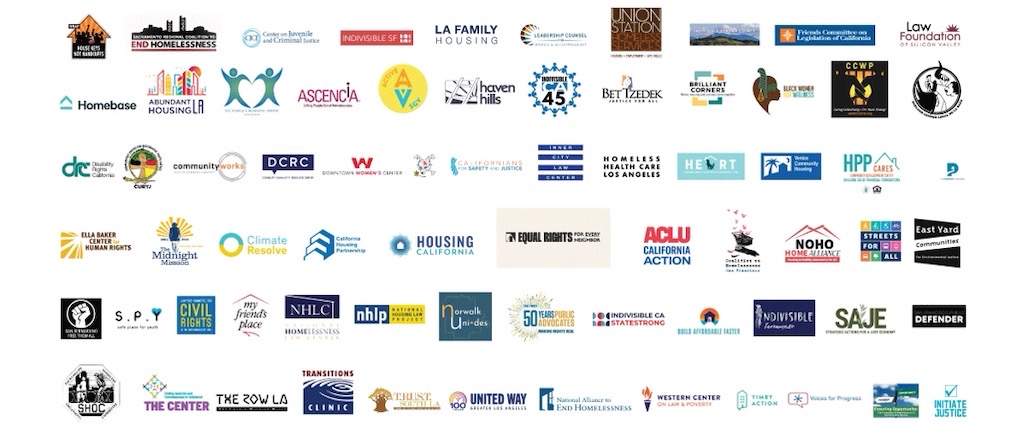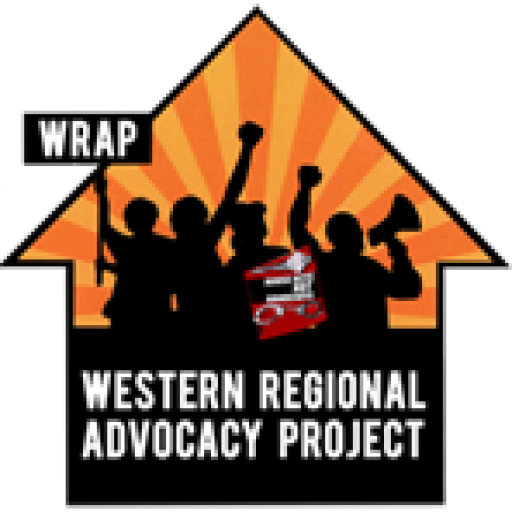
The Equal Rights for Every Neighbor Coalition is seeking organizations and individuals to sign a statement in opposition to SB 31 (Jones), newly introduced legislation to greatly expand the criminalization of homelessness in California.
The statement reads:
“As organizations and individuals who work to end homelessness and protect the human and civil rights of all Californians, the undersigned join together to oppose SB 31 (Jones), which seeks to further criminalize the very existence of our unhoused neighbors in public space. SB 31 would make it a crime to sit, lie, sleep, or store, use, maintain, or place personal property upon any street, sidewalk, or other public right-of-way within 1000 feet of a so-called “sensitive area”, including schools, daycare centers, parks, or libraries. We are gravely concerned that SB 31 would further demonize, destabilize, criminalize, and violate the human rights of unhoused Californians while failing to address the underlying driver of homelessness: the lack of affordable and accessible housing to Californians with the lowest incomes. However, we would welcome a chance to work with the bill’s co-authors and other members of the legislature to advance solutions that address the urgent housing, economic, and health needs of Californians experiencing homelessness and housing insecurity.
Given the ubiquity of schools, parks, libraries, and daycare centers, this policy would effectively make it a crime for any unhoused Californian to exist in public space, and put police officers at the frontlines of responding to our state’s affordable housing and homelessness crisis. By framing the bill as means to protect children and families, this measure perpetuates false narratives that unhoused people are inherently dangerous. It also ignores that our unhoused neighbors include families and children who attend schools and visit parks and libraries. Further, given the fact that Black people and other people of color disproportionately live without housing or shelter and are unjustly targeted by law enforcement, SB 31 also reinforces dangerous racialized stereotypes that continue to reproduce systemic inequity in housing, health, employment, and legal outcomes.
Only housing ends homelessness, and at present, California is experiencing a housing affordability crisis decades in the making, with a statewide shortage of 1.2 million affordable homes. Without housing options, criminalizing basic activities of living cannot solve homelessness and may make it worse. As shown by recent research and reporting from across the state, sweeping encampments and criminalizing unhoused people with nowhere else to go is traumatic, destabilizing, and ineffective. People displaced by sweeps regularly lose access to important belongings, including identity documents, medication and healthcare resources, and irreplaceable belongings such as photographs or family heirlooms or have them seized and destroyed. Penalties for sleeping create legal and financial barriers that may make it harder to access housing or services in the future. Sweeps can disrupt service provision and exacerbate well-founded mistrust of government workers and institutions. Under SB 31’s proposed enforcement zones, people would almost certainly be pushed to areas far away from critical services and resources. Finally, a police-based response to homelessness is extremely costly to local governments, diverting critical resources away from long-term solutions like affordable and supportive housing, mental health services, infrastructure, and other critical life-affirming resources.
Criminalizing unhoused people because they are homeless violates their constitutional and civil rights. Courts have found that, where people experiencing homelessness have no alternative housing or shelter, the state is prohibited from criminalizing acts such as sitting, lying, sleeping, or other life-sustaining activities. People cannot be restricted from public spaces by reason of their housing status, especially given that decades of underinvestment mean that services, shelters, and housing options do not exist in this state for everyone who needs them. The effect of such a blatantly discriminatory law will lead to further stigmatization and discrimination of people experiencing houselessness.
SB 31 perpetuates a harmful trend of scapegoating our unhoused neighbors and wasting public resources on inequitable and ineffective enforcement-driven homelessness policy. If the legislation’s goal is, as its authors claim, to increase safety for families and children as well as people living in encampments, there are many ways to do so that do not require police or criminal penalties: ongoing sanitation services, regular trash pickup, housing navigation resources, and on-site support services at encampment sites while people wait to be connected to interim and permanent housing and services.
While we vehemently oppose SB 31, we reiterate our interest in working the Legislature to secure additional state resources to deliver on our neighbors’ basic health and housing needs, including through budget investments in supportive and affordable housing, service provider outreach, community-based mental health and substance use treatment services to support our unhoused neighbors in connecting to the housing and care they want and need.”



Leave a Reply
You must be logged in to post a comment.